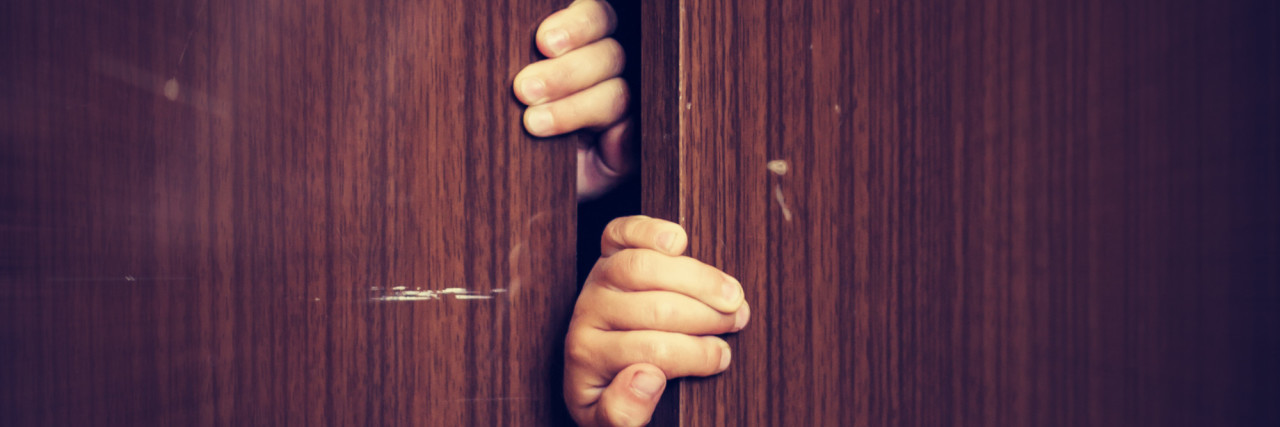You get sick. Then you get well, or die. At least that is how we imagine it. Disability leaves us somewhere else: not sick or well, not recovering or rapidly declining. We live in an in-between for which I must make up and reappropriate words: the white room is the temporary calm of the doctor’s office with its white walls. Crip time is all the waiting — for doctors, for devices that are custom-made, for the money or aid to buy them, for pills to kick in, for flare-ups to subside. Temper tantrum is what I called the internal eruptions of fury at my limitations that I lived with for the first few years.
The newest term I’ve stolen (with apologies to my fellow queer folks) is the closet. I’m a 32-year-old white woman, usually invisible in wire-rimmed glasses and a modest cotton button-down. My limbs appear intact; I am upright and my gate is unremarkable; the scars on my skin are nowhere obvious. This affords me what Eve Sedgwick called “the very equivocal privacy of the closet.”
Unlike someone with visible disabilities, I get to choose if and when to reveal my limitations, the details of which feel as private to me as the details of my last bowel movement or the number on my scale this morning. I’m average along both of these parameters, but they evoke an intense sense of privacy nonetheless.
Coming out is not something you do once, but something you do or decline, over and over and over, in each new situation. The closet makes every an encounter a decision. My equivocal privacy brings the equivocal privilege of choice.
Most days, most places, I don’t want to tell. I don’t want to tell the driver or the scowling elderly passengers why I need a seat on the bus. I don’t want to explain that I’m not there to teach the yoga for disabilities class. I’d rather be thought rude than detail to a colleague why I’m not folding chairs and stacking them against the wall at the end of the meeting.
Yet with my friends, with my kin, there is the need to speak. When I was first injured and in the chaos of trying to find good doctors, research treatments, and manage the financial terror of disability, it was largely for the relief valve talking can be. Five years out, I do need this valve now and then, but most of all, I need the people in my life to understand something about my life. I need to be known.
May you, dear reader, be spared the existential chasm of “figuring out who your real friends are” that so often accompanies illness or disability. I learned early on in my ordeal that almost no one wants to hear about your physical pain, the uncertain diagnoses, the fear they bring. The openness that once won me friends now costs me them, so I learn to ration my complaints.
Most days, pain pulses along my nerve tracks, an unwanted companion. Pain and disability shape my choices in all aspects of my life: how much work I can do today and what work exactly, whether or not I am able to cook dinner tonight, how I budget money, and even whether or not I can offer a lover a shoulder rub on a day when they are aching, too. I long for someone with whom I don’t have to edit these parts of myself out of the weekly catch-up or the “How was your day?”
Most days, I say nothing. I save my complaints for when I need them most, and in doing so, I save my relationships. I spare the others. I feel myself closing in on myself like a morning glory curling up at night.
My silence protects me. My silence silos me.
Follow this journey on Hope R. Henderson.
We want to hear your story. Become a Mighty contributor here.
Photo by contributor.

